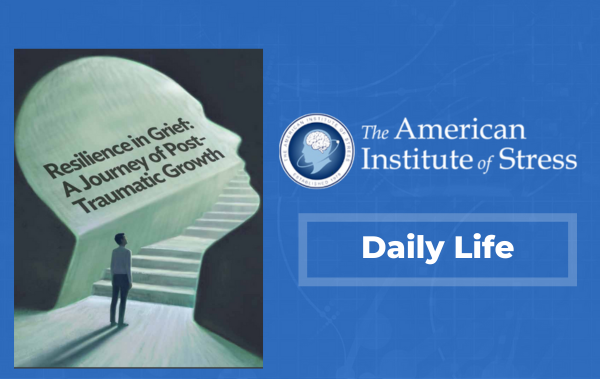Stress can speed up aging.
A study published in the Proceedings of the National Academy of Sciences found that stress can add years to the age of a person’s immune system cells.
The study focused on telomeres, or caps on the end of chromosomes. Whenever a cell divides, the telomeres in that cell get a little shorter. When the telomere becomes too short, time runs out and the cell can no longer divide or replenish itself.
This is a key process of aging.
Researchers checked both the telomeres and the stress levels of 58 healthy premenopausal women. Results showed on average, the immune system cells of highly stressed women had aged by an extra 10 years. The study didn’t explain how stress adds years to cells making up the immune system but revealed that the exact mechanisms that connect the mind to the cells are unknown.
Researchers are sticking with the theory that stress hormones could be somehow shortening telomeres and cutting the life span of cells.
Stress management is still considered the key to living a longer, healthier life. Things like maintaining a positive outlook, staying close to family and friends, and exercising are all recommended for healthy aging.
Now, researchers are looking into what’s behind the disparities and how to promote healthy aging for everyone.
Cancer, heart disease, and pneumonia; as our age goes up, so does our risk for these diseases. But why do older adults of the same age have drastically different health outcomes? Researchers have narrowed down the culprit to stress.
“One part of the stress response is linked to how our immune system responds. Excessive amounts of inflammation in response to stress can have negative outcomes,” said Christopher Lowry, PhD, an associate professor at University of Colorado Boulder.
Meaning some are more likely to have poor health as they age. Researchers at University of Southern California say: it’s true for those who have more stress have a poor diet and exercise less. They also found something called CMV it may be a target for intervention. Just like shingles and chickenpox, CMV is a virus that is dormant most of the time.
“It persists in our bodies at very low levels and generates very, very, strong, very potent responses,” said Louis Picker, MD, at Oregon Health & Science University.
Especially when a person is experiencing high stress. Controlling CMV was found to limit the connection between stress and unhealthy aging, giving everyone a better chance to age gracefully.
A team of researchers from Penn State studied whether people who experience little to no stress are healthier than people who do become stressed.
In the study, the researchers tracked 2,804 participants for over a week interviewing them nightly for eight consecutive nights, asking questions about their chronic conditions, physical symptoms, mood, and number of stressors they experienced during the day.
They also asked how many positive experiences they had.
About 10% of the participants did not report experiencing stress during the study period. These individuals were more likely to experience positive moods and less likely to have chronic health conditions. However, the participants who did not experience stress scored lower on the cognition test than those who did. The difference in scores equated to the cognitive decline that would occur in approximately 8 years of aging. Participants who did not report any stress also experienced fewer positive events than those who did and were less likely to give or receive emotional support.
“Experiencing these stressors may not be pleasant, but they may force you to solve a problem, and this might actually be good for cognitive functioning, especially as we grow older,” said senior author David M. Almeida, a professor of human development and family studies at Penn State.

 (WNDU) – Everyone ages, however, some age better than others.
(WNDU) – Everyone ages, however, some age better than others.



